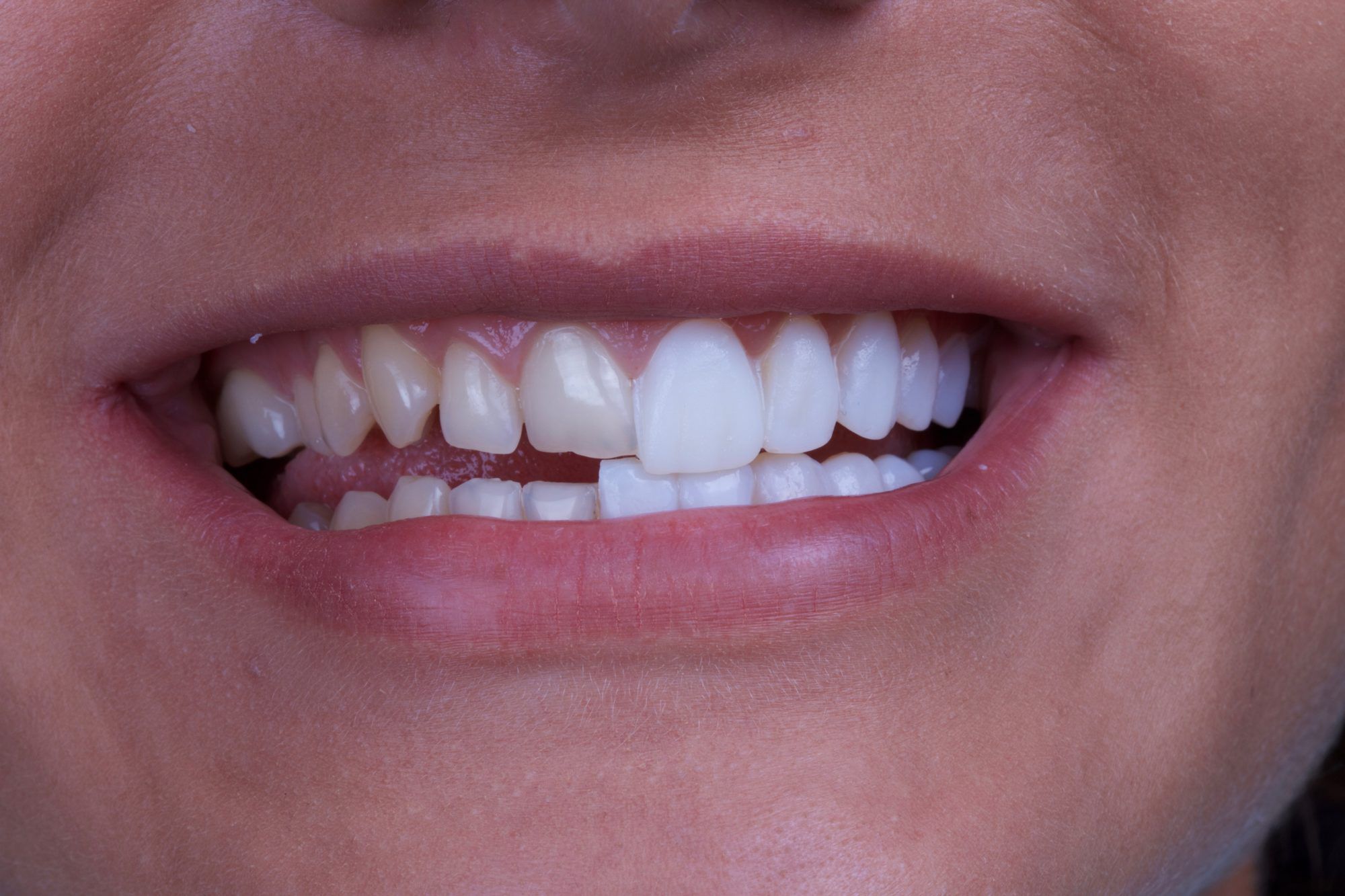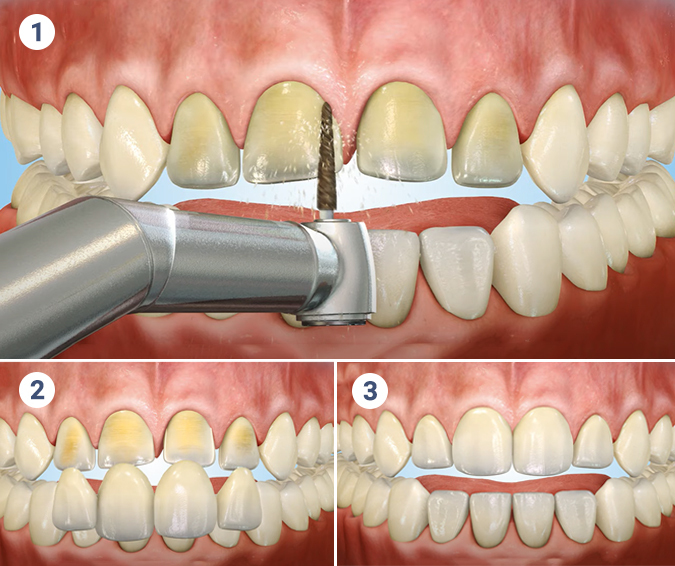The Complete Review of Veneers: Types, Utilizes, and Their Impact on Your Smile
Veneers act as a popular service for people seeking to enhance their oral appearances. These custom-crafted shells can properly mask flaws such as staining and voids. With two main kinds available, porcelain and composite resin, each offers unique benefits and constraints. The impact of veneers prolongs past plain look, affecting self-worth and social interactions. Recognizing their benefits and types is vital. What might this indicate for one's overall lifestyle?
Understanding Veneers: What They Are and How They Work
Veneers are thin shells, normally made from porcelain or composite material, that are custom-crafted to fit over the front surface area of teeth. They serve both practical and visual purposes, providing a service for different oral blemishes such as staining, gaps, and minor imbalances. By sticking to the tooth enamel, veneers create a natural look while improving the form and color of the teeth.
The process generally involves a preliminary examination, where a dentist assesses the patient's demands and goes over preferred outcomes - Veneers Teeth. Following this, a marginal quantity of enamel may be removed to accommodate the veneer. Impressions of the teeth are then taken to guarantee a precise fit. As soon as made, the veneers are bound securely to the teeth making use of an unique dental adhesive. This procedure not just enhances the smile's look however additionally aids secure the underlying teeth from additional damage, making veneers a popular selection for several seeking a smile makeover
Sorts of Veneers: Porcelain vs. Compound Resin
The difference between porcelain and composite resin veneers hinges on their material make-up and qualities. Each kind uses varying levels of expense, toughness, and durability, influencing individuals' options based on their specific needs. Understanding these distinctions is essential for making an informed choice concerning oral improvements.
Material Distinctions Explained
While both porcelain and composite resin veneers offer the very same cosmetic purpose, they vary substantially in material buildings, sturdiness, and visual end results. Porcelain veneers are crafted from a ceramic material that imitates the all-natural translucence of teeth, giving a lifelike appearance. Their smooth surface area is resistant to discoloration, making them an enticing alternative for those looking for a resilient visual. On the other hand, composite resin veneers are made from a tooth-colored plastic material, providing adaptability and convenience of application. Nevertheless, they might not attain the same level of brightness or translucency as porcelain. Additionally, composite veneers can be extra easily shaped and repaired, making them a much more adaptable choice in particular dental situations. Each kind presents one-of-a-kind benefits tailored to specific choices.
Long life and Resilience
Longevity and resilience are significant factors when comparing porcelain and composite resin veneers. Porcelain veneers are understood for their toughness, typically enduring 10 to 15 years with proper care. Their strength versus cracking and staining makes them a preferred choice for individuals looking for long-lasting results. In comparison, composite material veneers usually have a shorter life-span, averaging 5 to 7 years. While they can be repaired more conveniently if damaged, they are more at risk to use and discoloration over time. The selection between these materials commonly depends on the person's lifestyle, visual objectives, and upkeep choices. Eventually, understanding the distinctions in longevity and durability can assist clients in picking the veneer type that ideal fits their demands.
Expense Contrast Insights
Cost is a critical consideration when picking between porcelain and composite material veneers. Porcelain veneers typically vary from $800 to $2,500 per tooth, reflecting their toughness, aesthetic charm, and resistance to discoloration. These veneers require a much more extensive procedure and specialized laboratory job, adding to their higher price. In comparison, composite material veneers are generally more budget friendly, costing between $250 and $1,500 per tooth. They can be used in a solitary visit, which lowers labor prices. However, composite veneers may need a lot more constant substitutes, potentially enhancing long-lasting costs. Inevitably, the choice between porcelain and composite resin veneers depends on individual budget plans and wanted end results, stabilizing initial costs versus long life and aesthetic results.
The Advantages of Finding Veneers for Your Smile
Selecting veneers provides substantial advantages for those looking for a boosted smile. Their improved aesthetic appeal can transform the appearance of teeth, while their stain-resistant properties guarantee a long lasting brightness - Porcelain Veneers Dentist. This mix makes veneers a prominent choice for individuals wanting to achieve a flawless smile
Enhanced Visual Charm
Veneers usually emerge as a favored solution due to their transformative aesthetic advantages when people seek to boost their smiles. These slim shells, generally made of porcelain or composite material, can successfully conceal blemishes such as chips, voids, and misalignment. By mimicking the all-natural appearance of teeth, veneers give a smooth, radiant smile. Their personalized nature permits a tailored strategy, making it possible for individuals to choose tones and shapes that ideal suit their face attributes. Furthermore, veneers can develop an uniform appearance, boosting overall face balance. This visual enhancement not just increases self-confidence but can likewise positively influence individual relationships and social interactions, making veneers a prominent choice for those seeking to achieve a brighter, much more attractive smile.
Stain Resistance Conveniences
Veneers not only boost aesthetic charm yet also use substantial discolor resistance, making them an eye-catching option for individuals worried about preserving an intense smile. Made up of resilient materials such as porcelain or composite resin, veneers are less permeable than all-natural teeth, which aids prevent the absorption of spots from typical wrongdoers like coffee, tea, and red white wine. This fundamental discolor resistance enables people to appreciate their preferred drinks without stressing over staining. What Are Veneers. Additionally, the smooth surface area of veneers makes them simpler to clean, additional enhancing their longevity and maintaining their pristine appearance. As a result, veneers offer a useful solution for those looking for both charm and performance in their oral treatment
The Refine of Obtaining Veneers: What to Expect

Although the process of getting veneers may seem Read Full Report intimidating, understanding the steps involved can reduce issues. An assessment with a dental professional is necessary to identify if veneers are the appropriate remedy for the person's dental problems. Throughout this appointment, the dentist will talk about wanted outcomes and take impacts of the teeth.
Next off, a second appointment is arranged for tooth go preparation, where a percentage of enamel is generally eliminated to suit the veneers. Momentary veneers may be put while the customized ones are crafted in an oral laboratory, which typically takes a pair of weeks.
When ready, the dentist will certainly place the veneers, ensuring appropriate fit and shade before bonding them to the teeth utilizing an unique adhesive. After final modifications, the dental expert will supply assistance click for source on care. Recognizing these steps can assist people feel a lot more comfortable and notified throughout the veneer process.
Upkeep and Care for Your Veneers
Preserving veneers requires constant like guarantee their durability and look. Proper oral health is essential; brushing two times daily with a non-abrasive tooth paste and flossing regularly assist stop plaque buildup around the veneers. Furthermore, regular dental check-ups are important for keeping track of the problem of the veneers and attending to any kind of possible concerns beforehand.
When biting to avoid damage, clients must prevent tough foods and too much force. It's additionally suggested to restrict intake of tarnishing compounds, such as coffee, tea, and merlot, as these can impact the veneers' color in time.

Changing Your Smile: Real-Life Influence of Veneers
A glowing smile can substantially boost one's self-confidence and total look. For lots of people, veneers act as a transformative option, effectively dealing with various oral worries such as discoloration, gaps, and misalignment. These thin coverings, custom-made to fit over the front of the teeth, can develop an unified and cosmetically pleasing smile.
Real-life situations show the profound impact veneers can have. People often report a prompt increase in self-esteem and social interactions following their procedure. The newly found self-confidence can cause more opportunities in individual and expert life, as individuals feel even more likely to involve and reveal themselves.
Furthermore, the psychological advantages expand beyond mere appearance; lots of experience enhanced mental well-being as they embrace their smiles. Subsequently, veneers not only enhance physical features however additionally add considerably to general top quality of life, highlighting their value in aesthetic dentistry.
Often Asked Concerns
Exactly How Long Do Veneers Usually Last Prior To Needing Replacement?
Veneers generally last in between 10 to 15 years prior to needing substitute. Factors such as dental hygiene, dental practices, and the kind of material utilized can influence their durability and general longevity. Regular oral exams are suggested.
Can Veneers Be Eliminated, and if So, Just how?
Yes, veneers can be removed. A dental practitioner generally utilizes specific devices to carefully detach them from the teeth, making sure minimal damages to the underlying enamel, often complied with by essential adjustments or repairs for suitable appearances.
Are Veneers Suitable for Everyone's Dental Problem?

Will Getting Veneers Hurt or Require Anesthetic?
Getting veneers typically entails minimal pain, and numerous people get neighborhood anesthetic to ensure a pain-free experience. Level of sensitivity might take place briefly afterward, however many locate the process tolerable and are satisfied with the results.
Just How Do Veneers Affect Tooth Level Of Sensitivity After Positioning?
Veneers can temporarily boost tooth sensitivity due to the elimination of enamel and the bonding process. Many people experience a decline in level of sensitivity over time as the teeth change to the brand-new veneers.
Veneers are slim coverings, typically made from porcelain or composite resin, that are custom-crafted to fit over the front surface of teeth. Porcelain veneers are crafted from a ceramic product that imitates the natural translucence of teeth, supplying a natural appearance. Porcelain veneers usually vary from $800 to $2,500 per tooth, mirroring their sturdiness, visual allure, and resistance to discoloration. In contrast, composite resin veneers are normally extra budget friendly, costing between $250 and $1,500 per tooth. Composed of durable materials such as porcelain or composite material, veneers are much less permeable than natural teeth, which helps avoid the absorption of stains from common wrongdoers like coffee, tea, and red a glass of wine.